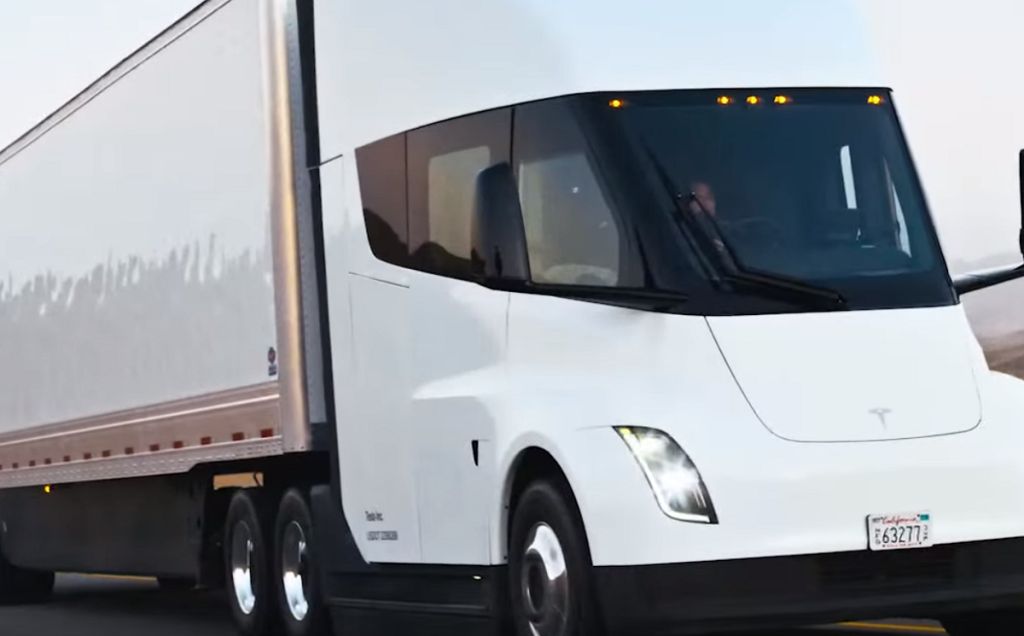Tesla’s foray into the world of electric trucks has been met with skepticism, but recent data from an independent study is starting to change the narrative. The North American Council for Freight Efficiency (NACFE) conducted a demonstration called “Run on Less,” focusing on the real-world performance of new electric trucks, specifically Tesla Semis in PepsiCo’s fleet. The results, though not without their caveats, are beginning to turn heads.
The Tesla Semi trucks demonstrated a maximum travel range of 545 miles on the first day of the research, with an amazing 377 miles being reached on a single charge. This surpasses the competition by a wide margin even though it falls somewhat short of Tesla’s ambitious 500-mile single-charge claim from 2022. Just 248 miles could be covered by the OK Produce eCascadia fleet in California on its initial charge. For context, conventional diesel-powered semi-trucks may go up to 1,000 miles on a single tank of fuel, but they have a negative impact on the environment due to their CO2 emissions, which electric vehicles seek to reduce.

Despite the fact that these results are encouraging, particularly when compared to those of other electric trucks, they do raise questions regarding the Tesla Semi’s capacity to manage lengthy trips without requiring regular recharging. A slower, more cautious driving style, however, may result in improved battery preservation, according to data from the second day of monitoring. Dave Mullaney of the Rocky Mountain Institute, a co-sponsor of the Run on Less events with NACFE, emphasized the positive aspects but also highlighted the importance of considering variables like load weight and weather conditions. He noted that the 350-mile truck range is a reality, but uncertainties remain.

The potential that Elon Musk’s ambition for electric trucks may be more attainable than previously believed is one key conclusion from this data. These findings imply that Tesla is making tremendous progress toward making electric transportation a reality, notwithstanding Bill Gates’s reservations about the viability of electric trucks.
While challenges and uncertainties remain, the real-world performance of Tesla Semis in PepsiCo’s fleet indicates a promising future for electric freight trucks. As technology continues to advance and infrastructure for electric vehicles improves, the trucking industry may see a transformative shift toward cleaner, more sustainable transportation solutions, and Tesla could be at the forefront of this revolution.


